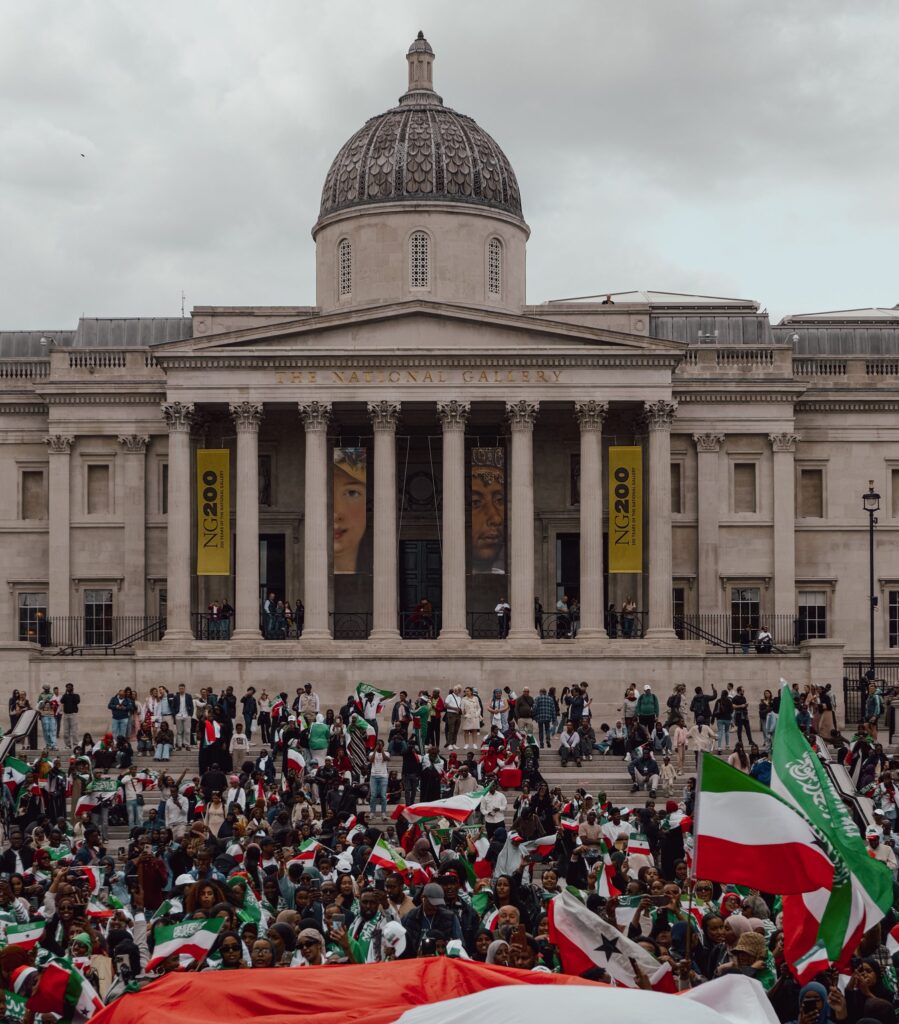Recognition of Somaliland could be a meaningful reset, an area where Labour in government and a Trump administration in Washington can align on values, strategy, and outcomes.
Hanad Darwish is a political consultant, Director of Labour Friends of Somaliland, and a former Senior Advisor to the Government of Somaliland
“Somaliland is not a breakaway province – it’s a nation that reasserted its independence and has shown a capacity for building its own democratic institutions, pursuing peace and security, and fostering economic growth.” Those are the words of New Labour minister and Welsh Labour grandee, Alun Michael, writing recently in The Guardian.
There’s been no international fanfare, no dependency on foreign donors, no UN trusteeship – just over three decades of democratic elections, internal stability, peaceful transfers of power, and a continuous thread of homegrown legitimacy. Somaliland is a functioning state in every meaningful sense, except for the one that counts most: international recognition. It’s not about creating a country; it’s about finally acknowledging one. This year marks 65 years since Somaliland first gained independence from Britain in June 1960. It voluntarily united with Somalia days later in a project of pan-Somali unity that ended in dictatorship and civil war. Since reclaiming its sovereignty in 1991, Somaliland has done everything the world asks of emerging states, and more. Yet still, it waits.
The UK’s official position is that it supports dialogue between Somaliland and Somalia and stands ready to support whatever outcome those talks produce. But this approach now rings hollow. Somaliland has engaged in such dialogue more than a dozen times since David Cameron initiated them in 2012. Each time, the blockage has come from Mogadishu, not Hargeisa. Those talks have now stalled not because Somaliland lacks willingness, but because Somalia lacks seriousness. The idea that recognition must be held hostage to an endless and one-sided process is no longer credible. If the UK continues to predicate its position on this approach, it risks turning principle into paralysis.
Now, the strategic landscape has shifted on this issue. Donald Trump is in the White House, and his foreign policy, love it or loathe it, follows a clear pattern – he prizes leverage and is willing to upend diplomatic convention when he sees it. Senior figures in his orbit have floated recognising Somaliland in return for relocating America’s military presence in the region from Djibouti, where China’s footprint looms large, to Berbera. A point further demonstrated by a recent Somaliland delegation in DC, and a reciprocal high-ranking US delegation in Somaliland. And here lies an opportunity hidden in the friction. The UK’s relationship with Washington has not been all smooth sailing of late. From diverging approaches on Ukraine to sanctions on far-right Israeli ministers, the special relationship has shown its limits. Recognition of Somaliland could be a meaningful reset, an area where Labour in government and a Trump administration in Washington can align on values, strategy, and outcomes.
It would also continue Labour’s recent bold, forward-thinking foreign policy doctrine. This government has not hesitated to revisit legacy disputes through a fresh lens, from acknowledging Moroccan claims over Western Sahara to forging a new path on the Chagos Islands and negotiating a post-Brexit détente over Gibraltar. Recognising Somaliland would not be a departure from that approach, it would be its logical extension. In many ways Britain already walks the walk. We are Somaliland’s largest individual development partner, we maintain diplomatic representation, and through British International Investment, we are a major shareholder in its DP World-operated port. In practice, we treat Somaliland like a sovereign nation. So why not recognise it?
Indeed, all of this also aligns with Foreign Secretary David Lammy’s own statement during his maiden tour of Africa last year, in that Labour’s approach will, “deliver respectful partnerships that listen rather than tell, deliver long-term growth rather than short-term solutions and build a freer, safer, more prosperous continent”. And Labour, of all governments, should understand the symbolism. British-Somalilanders across the country, particularly in urban Labour strongholds from London to Cardiff, Sheffield to Bristol and beyond, have long stood with this party, generation after generation.
Labour came to power on the promise of renewal, and that includes renewing how we conduct our foreign policy. Here is a chance to prove it, to forge a bold approach to diplomacy, and truly reap the benefits of a global Britain – something that became all but a slogan under the previous Conservative administration. This is why we will be formally launching the Labour Friends of Somaliland next month.
Left Foot Forward doesn’t have the backing of big business or billionaires. We rely on the kind and generous support of ordinary people like you.
You can support hard-hitting journalism that holds the right to account, provides a forum for debate among progressives, and covers the stories the rest of the media ignore. Donate today.




